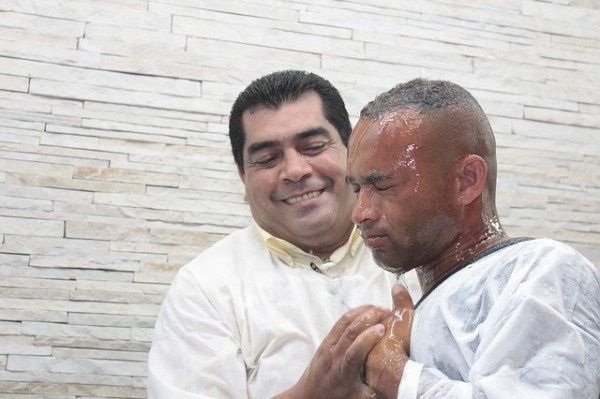Youth Pastors Feel Ill-Equipped to Help Young People Cope with Mental Health Issues, Baylor Study Finds

Many mental health disorders first surface during adolescence, and college and youth pastors are in a good position to offer help or steer youths elsewhere to find it. But many of those pastors feel ill-prepared to recognize and treat mental illness, according to a Baylor University study.
The study - "Adolescent mental health: the role of youth and college pastors" - is published in the journal Mental Health, Religion & Culture.
Unlike senior pastors, those who work with young people are expected to have more extensive contact with their congregants because this likely occurs outside of church services, researchers said. Because youth groups are smaller than the congregations themselves, a greater chance exists for deep relationships between pastors and adolescents, including through one-on-one counseling, Bible study groups, mission trips and service opportunities, said researcher Matthew S. Stanford, Ph.D., professor of psychology and neuroscience in Baylor's College of Arts & Sciences.
Study respondents were 94 youth and college pastors representing churches ranging in size from 45 to 8,000 members. Churches were located in Abilene, Austin, College Station, Dallas-Fort Worth area, Houston, Lubbock, Midland, San Antonio, Temple-Killeen area and Waco.
The survey showed that:
Youth pastors ranked depression as the most prevalent mental health issue they have seen among youths, followed by pornography, grief/bereavement, anxiety, aggression/anger, sexual behavior, alcohol/drug abuse, ADHD, emotional abuse, eating disorders, stress from having a family member with a mental health issue, domestic or spousal abuse, juvenile delinquency, gender identity, sexual assault/abuse and physical abuse.
The study showed that youth and college pastors' most common method of intervention was to meet with the adolescent and refer the individual to a mental health professional. While many of the pastors described using biblical counseling methods, some counseled primarily with psychological concepts, using such methods as talking through coping skills or role-playing.
The sample of youth pastors showed they believe that psychological well-being affects spiritual development. But they lacked training and confidence to interact with the mental health system, and some tensions and conflicts exist between pastors and mental health professionals.
A youth pastor's "unique role as gatekeeper can be improved," and pastors are interested in knowing more about counseling, researchers said. Many are unaware of mental health professionals with whom to work and did not know what psychotherapy would entail - including time, cost and scope of services.
Researchers recommended that mental health professionals working with religious youths consider the role of the youth pastor and reach out to faith communities to collaborate.
"Outreach will allow the pastor and mental health professional to gain an understanding of the other while becoming familiar with each other's 'language' and view of mental health," researchers said.
Co-researcher was William Hunter, a doctoral candidate of clinical psychology at Baylor.
Nov 04, 2014 03:43 PM EST





